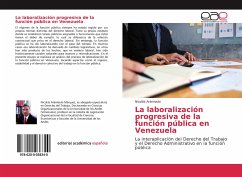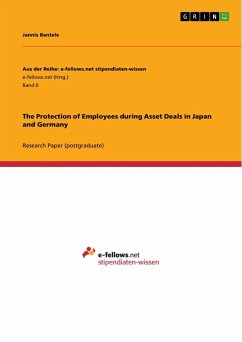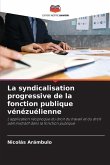The civil service regime has always been governed by its own rules distinct from labour law. It has its own statute in which public tasks are assigned to civil servants and which they have a duty to perform, which differs from the contractual relationship that prevails in labour law. However, the civil service has become increasingly labourised over time. In many cases this labourisation has derived from legislative changes, in others it has been the result of events, which in labour matters have historically been natural channels for advances and demands. This essay will analyse the process of labourisation of the civil service in Venezuela, touching on aspects such as entry, stability and collective labour law in the civil service.








